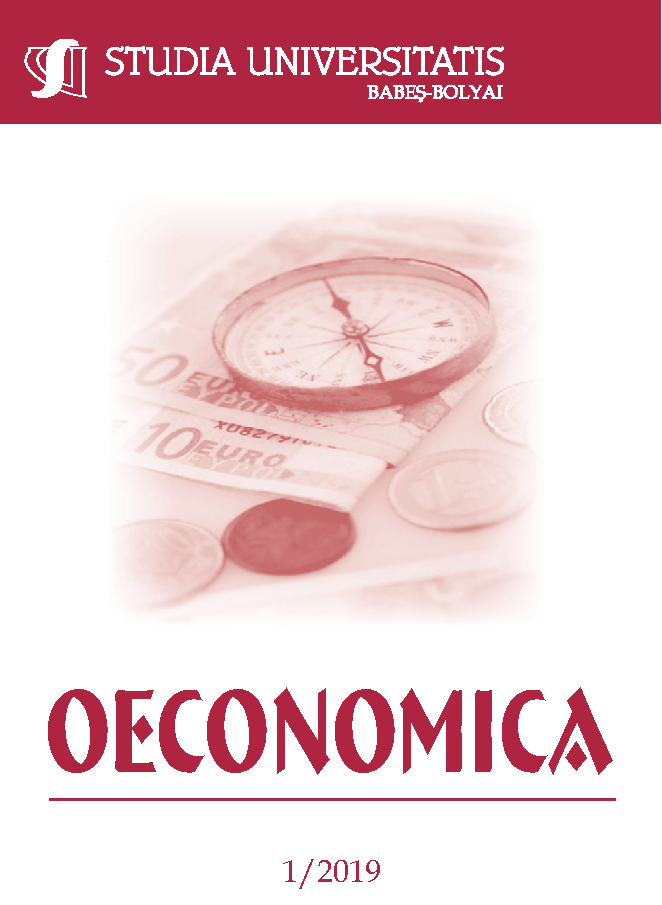THE IMPORTANCE OF SUPPLIER EVALUATION IN SHORT SUPPLY CHAINS
DOI:
https://doi.org/10.2478/subboec-2019-0006Keywords:
short supply chain, supplier evaluation form, supplier, case study.Abstract
The consideration of supply chains can foster the viability and maintainability of local producers. The formation and retention of the market may be complicated for local producers; therefore it is advisable to take the creation of supply chains into consideration. Constant feedback and evaluation is highly important to maintain successfully operating short supply chains and supplier evaluation forms could act as the starting point of these chains. These forms reflect the strengths and weaknesses of suppliers, based on which the correction of mistakes can be done and the performance of suppliers may be enhanced. The aim of this study is to examine the role of supplier evaluation form and relationships between customers and suppliers in short supply chains, from a local producer’s point of view through a case study. The scientific relevance of this study is to draw particular attention to short supply chains which are and will be of high importance considering local economies. As the case study reveals, it is recommended for the members of short supply chains to use supplier evaluation forms.
JEL classification: Q31;
References
Chikán, A.- Demeter K. (1999) Az értékteremtő folyamatok menedzsmentre; Termelés, szolgáltatás, logisztika, Aula Kiadó, Bp., 443.
Csiszárik-Kocsir Ágnes (2017): Etikus pénzügyek, avagy a pénzügyek etikája: Vélemények egy kutatás eredményei alapján Polgári szemle 12. évf. 4-6. szám pp. 75-87., 2017.
Dajnoki K. – Szabados Gy. – Kulcsár G. – Bácsné Bába É. (2018) Visszatérni vidékre” – A vidéki élet kvantitatív és kvalitatív megközelítésben. International Journal of Engineering and Management Sciences (IJEMS), 3(5) DOI: 10.21791/IJEMS.2018.5.22.
European Parliament (2016) Short food supply chains and local food systems in the EU. Briefing, 2016 September
Esse, B. (2012) A beszállító-kiválasztási folyamat szerepe és stratégiái. Budapesti Corvinus Egyetem, TM 36. sz. műhelytanulmány, p.8.
Hwang, B.N., Chen, T.T., Lin, J.T. (2016) 3PL selection criteria in integrated circuit manufacturing industry in Taiwan, Supply Chain Management: An International Journal, 21(1), 103-124.
Fehr, A., F., C., L., Rocha, W. (2018) Open-book accounting and trust: influence on buyer-supplier relationship, RAUSP Management Journal, 53(4), Sao Paulo, p.598.
Ilbery, B., Maye, D. (2005) Alternative (shorter) food supplychains and specialist livestock productsin the Scottish-English borders, Environment and Planning, 37, pp. 823-844.
Jarzebowski, S., Pietrzyck, K. (2017) The concept of short supply chains in the food economy, The Common Agricultural Policy of the European Union- the present and the future, Institute of Agricultural and Food Economics National Research Institute, p.197-198.
Jin, S., Vidyaranya, B.G. (2016) Supplier selection in small- and medium-sized firms, American Journal of Business, 31(4), p. 169.
Pató, G. Sz. B., Kopácsi, E., Kreiner, B. (2015) Beszállító értékelés folyamatának elemző kutatása, Vállalkozásfejlesztés a XXI. században tanulmánykötet, Óbudai Egyetem, Keleti Károly Gazdasági Kar, pp. 60-61.
Pató, G. Sz. B., Kopácsi, E., Kreiner, B. (2016) Beszállító értékelés vizsgálata SWOT analízis segítségével, Vállalkozásfejlesztés a XXI. században VI. tanulmánykötet, Óbudai Egyetem, Keleti Károly Gazdasági Kar, p.253.
Pató, G., Sz., B., Kopácsi, E., Kreiner, B. (2017) Gondolatok a bizalom szerepéről a beszállítói kapcsolatokban, Vállalkozásfejlesztés a XXI. században, VII. Tanulmánykötet, Óbudai Egyetem, Keleti Károly Gazdasági Kar, pp.499, 503, 507
Pató, Sz. G. Beáta (2017) Formal Options for Job Descriptions – theory meets practice, Journal of Management Development, 36(8), 1008-1028.
Pató, Sz. G. Beáta (2015): The 3D Job Description, Journal of Management Development, 34(4), 406 – 420.
Peters, R. (2012) Local Food and Short Supply Chains, EU Rural Review, N 12
Renting, H., Marsden, T.K., Banks, J. (2003) Understanding of alternative food networks, exploring the role of short food supply chains in rural development, Environment and Planning, 35(3), 431-436.
Salam, A., M., Khan, A., S. (2018): Achieving supply chain excellence through supplier management, Benchmarking: An International Journal, p. 4088
Szabó-Szentgróti G., Gelencsér M., Szabó-Szentgróti E., Berke, Sz. (2019) Generációs hatás a munkahelyi konfliktusokban. Vezetéstudomány - Budapest Management Review, 50 (4), 77-88.
Szász, L., Demeter, K. (2017) Ellátásilánc-menedzsment, Akadémiai Kiadó, Budapest, pp. 13-22.
Szegedi, Z., Prezenszki, J. (2005) Logisztika menedzsment, Kossuth Kiadó, Budapest pp. 92-96.
Szegedi, Z., Prezenszki, J. (2012) Logisztika menedzsment, Kossuth Kiadó, Budapest, pp. 367-368.
Downloads
Published
How to Cite
Issue
Section
License
Copyright (c) 2019 Studia Universitatis Babeș-Bolyai Oeconomica

This work is licensed under a Creative Commons Attribution-NonCommercial-NoDerivatives 4.0 International License.






